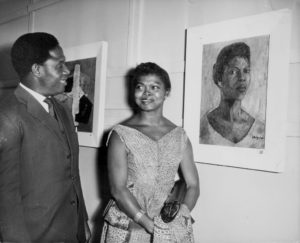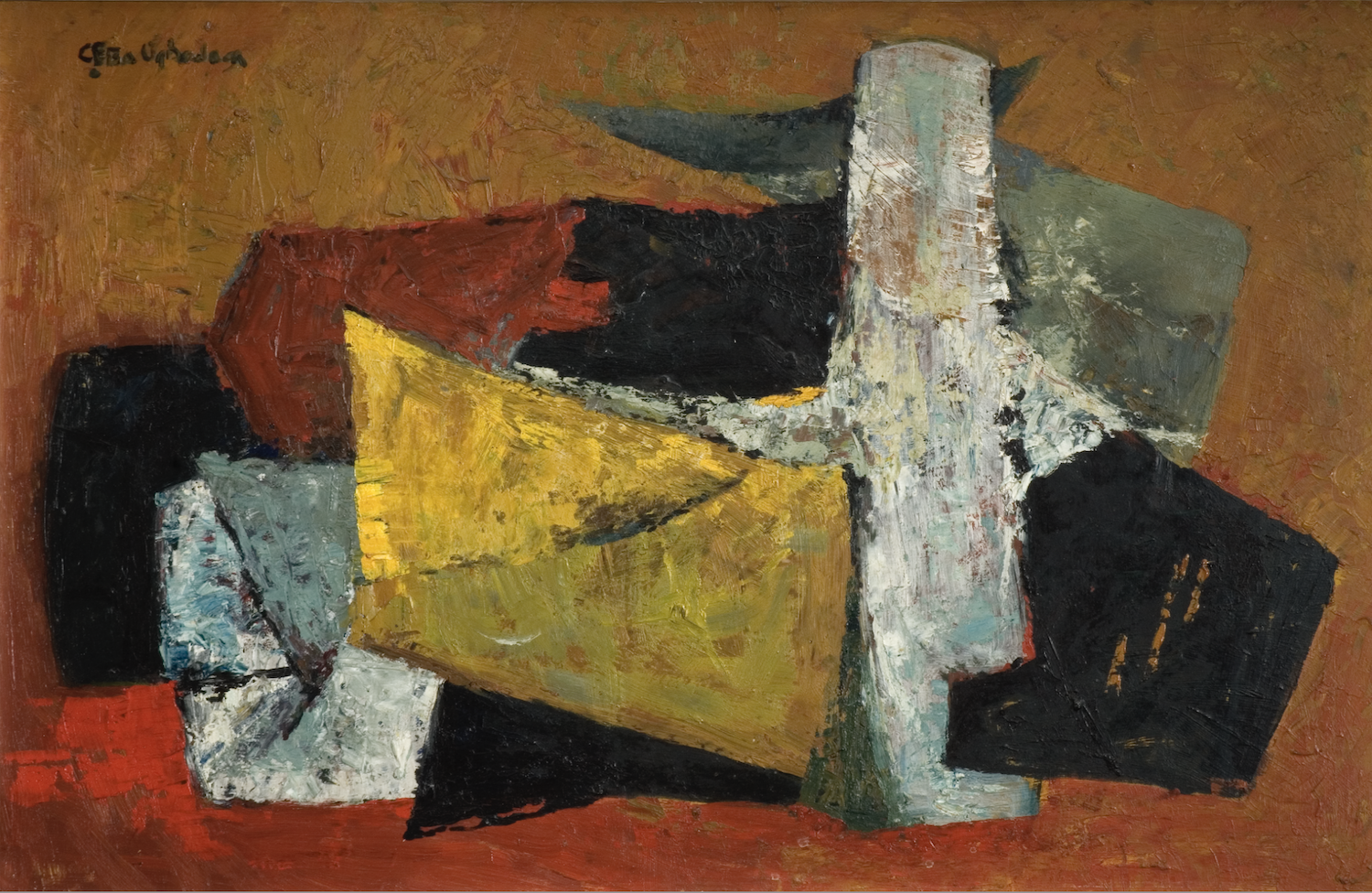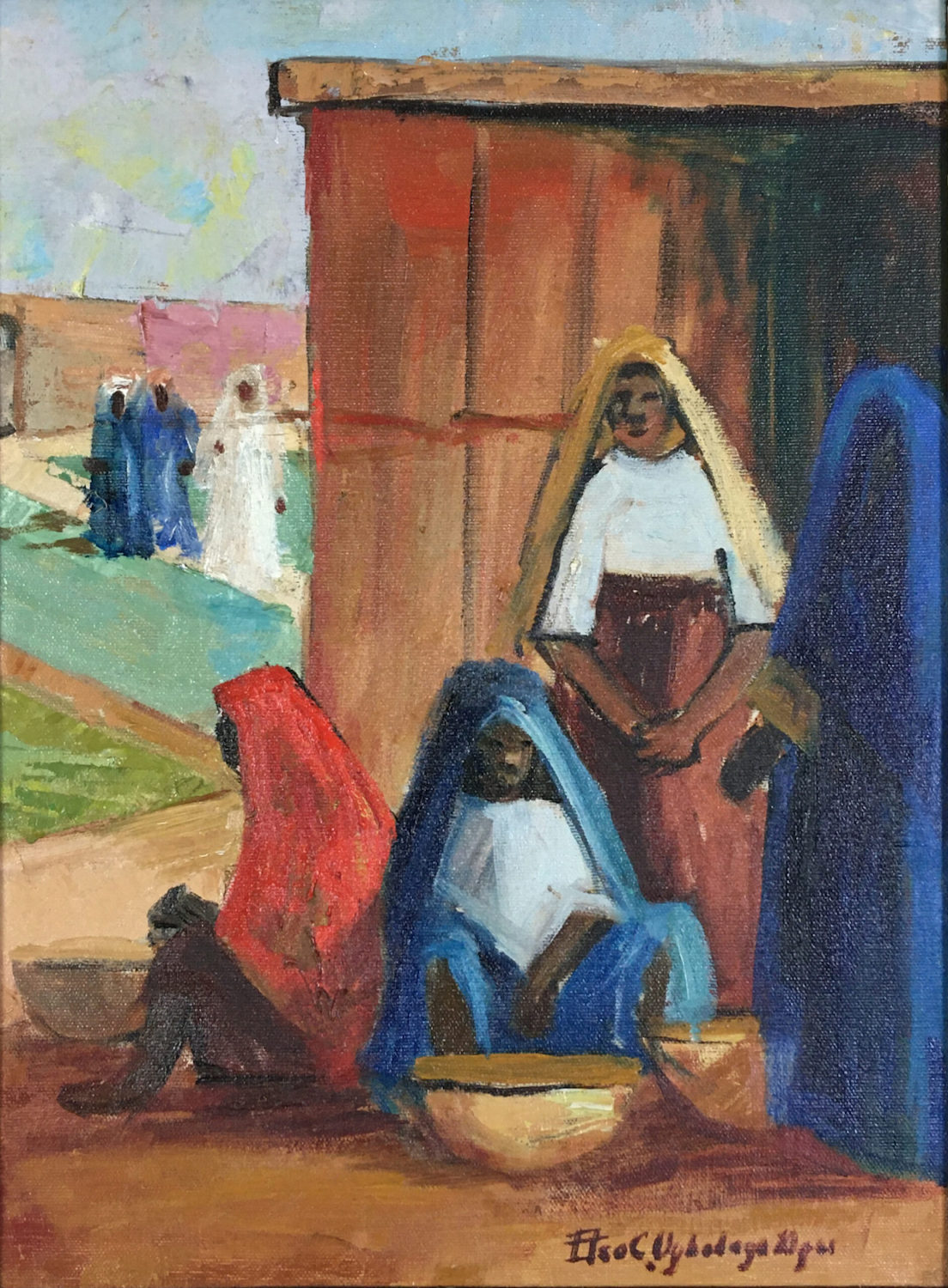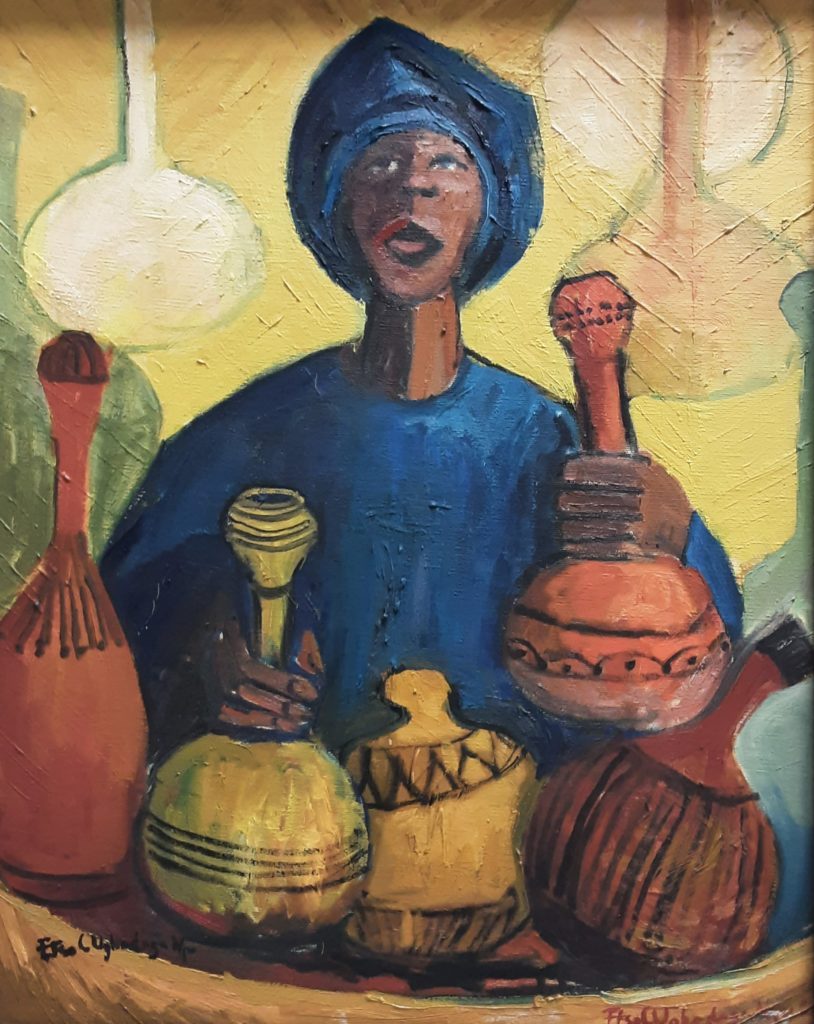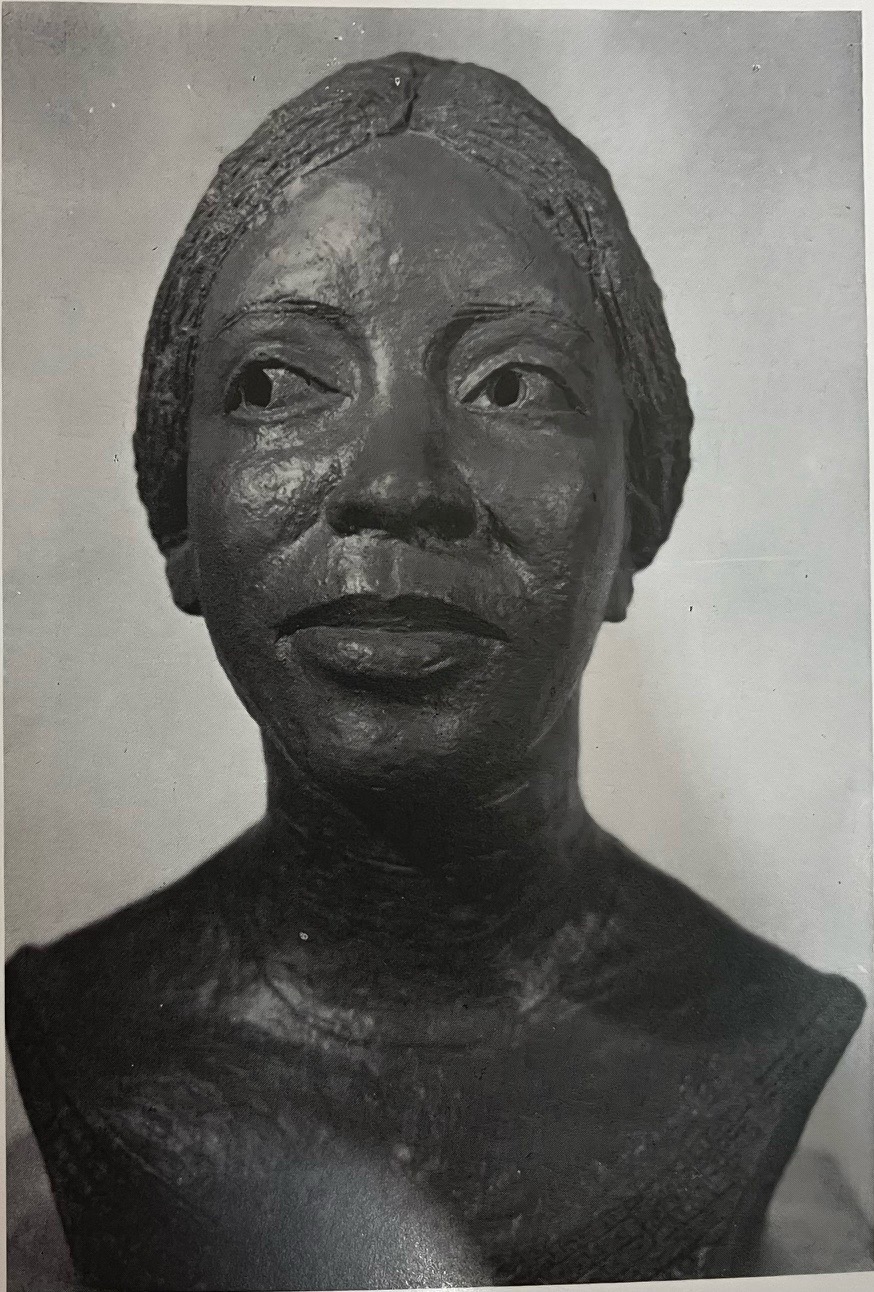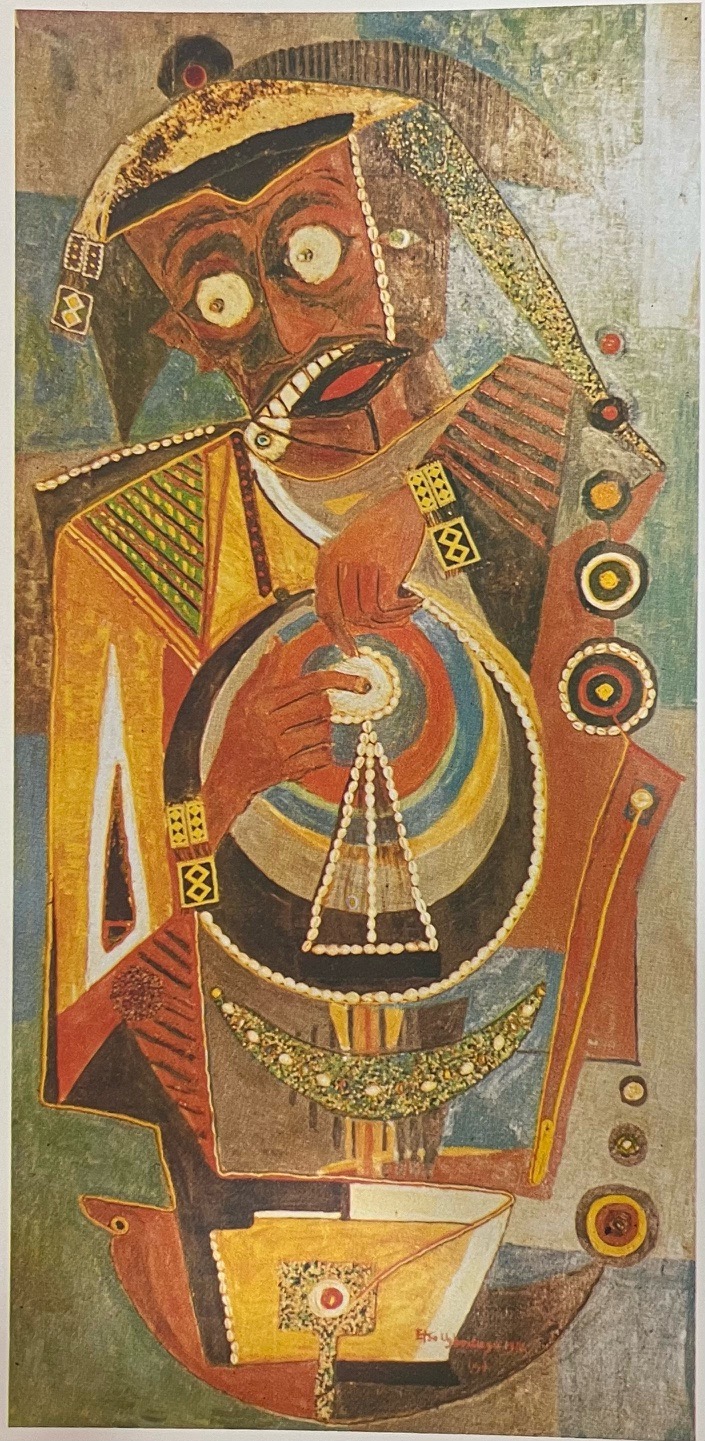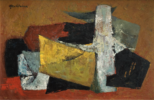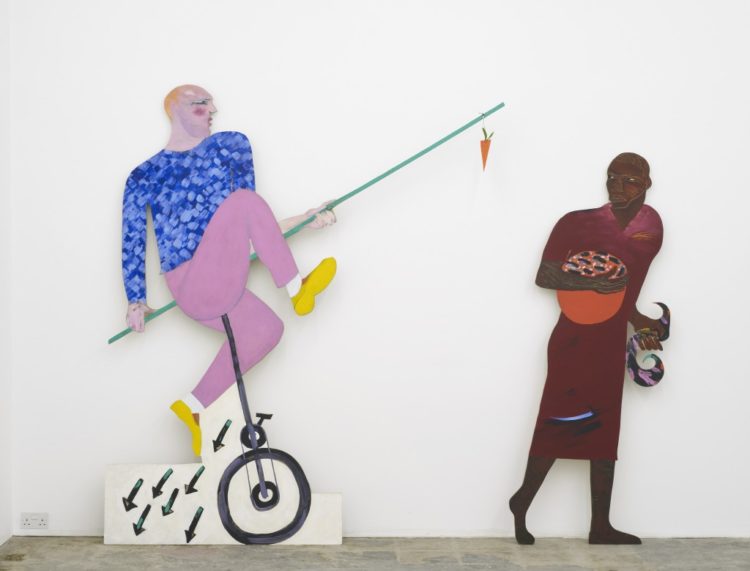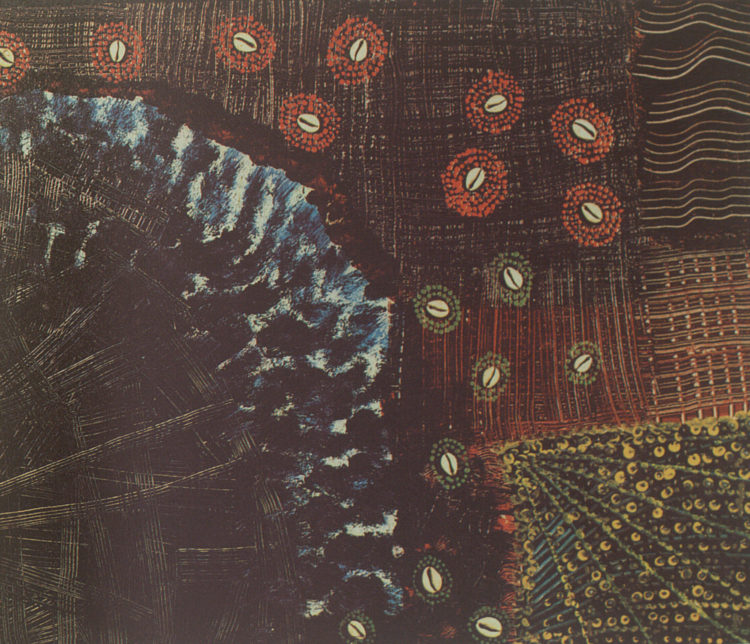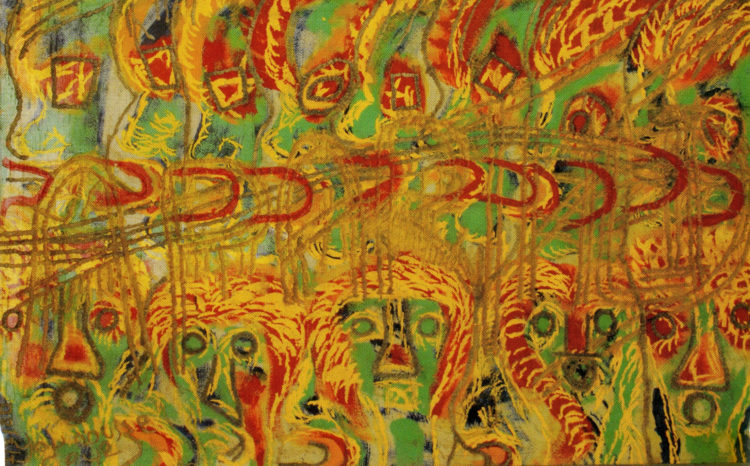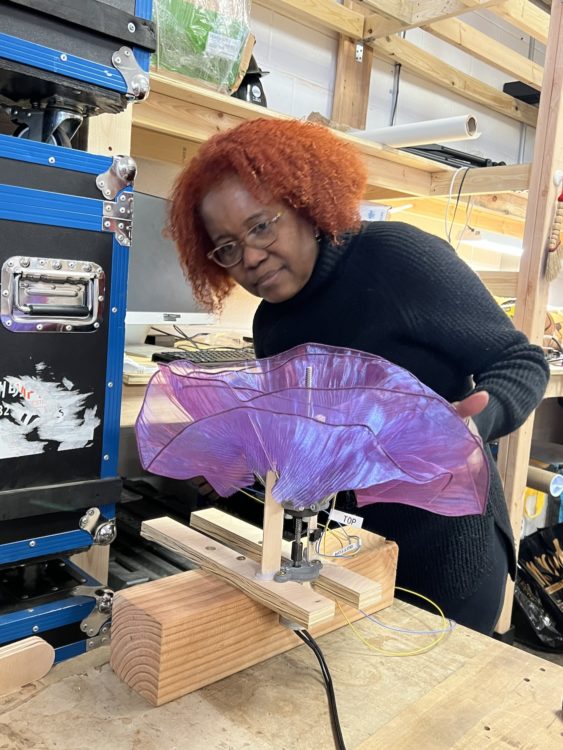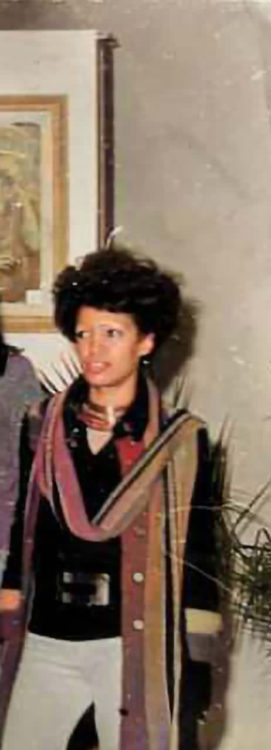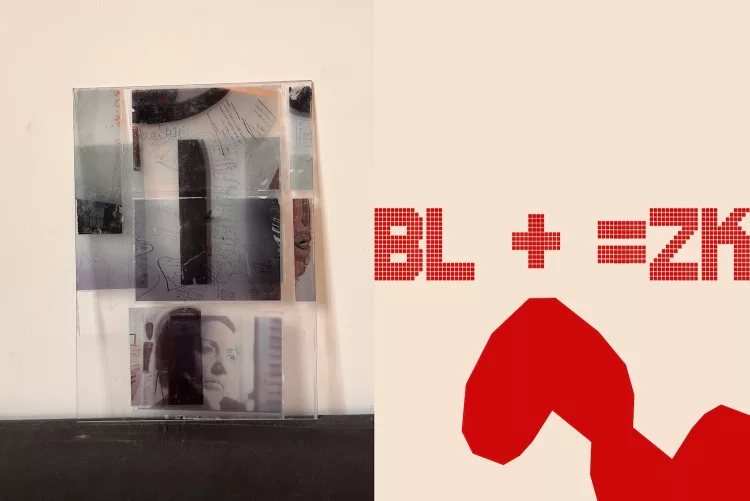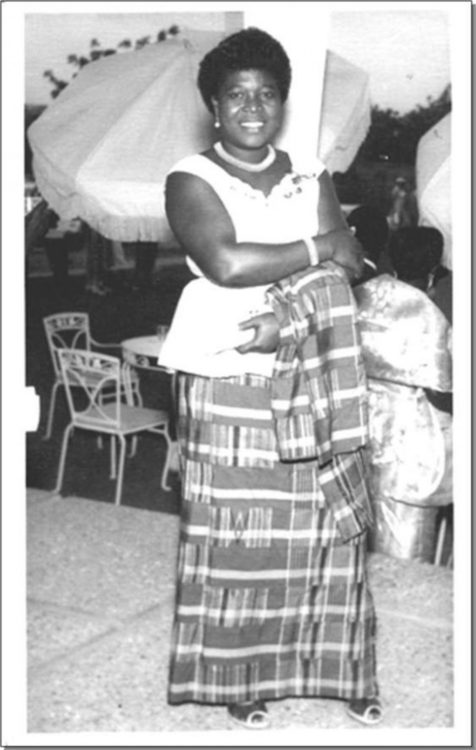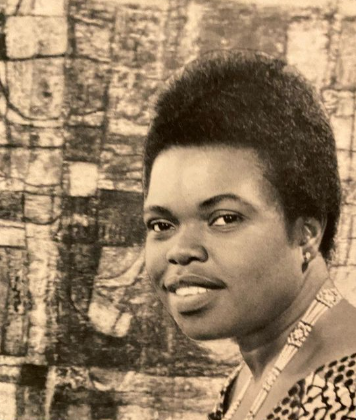Clara Etso Ugbodaga-Ngu
Sule Ameh James, ‘Clara Etso Ugbodaga-Ngu’s Many Roles in Nigeria’s Modernist Art Scene’, Post Notes on Art in a Global Context, 26 July 2023.
→Daniel O. Babalola, The Nigerian Artist of the Millennium: Historian, Builder, Aesthetician and Visioner, Abuja, National Gallery of Art, 2004.
→Jareh Das, ‘Shaping the Nation: Clara Etso Ugbodaga-Ngu’, Bonhams Magazine, no. 70, Spring 2022.
Exhibition of Nigerian art, FESTAC 77, World Black and African Festival of Arts and Culture, Lagos, 15 January–12 February 1977.
→Radcliffe Graduate Center, Boston, 1963.
→Commonwealth Institute Art Gallery, London, 1958.
Nigerian painter, sculptor and textile artist.
Clara Etso Ugbodaga-Ngu was born in Kano, in northern Nigeria, to Edo parents. A pioneer of Nigerian postcolonial modernism, her work is both figurative and abstract, portraying scenes of daily life in a newly independent country. She occupied a singular role in the Nigerian art scene in the 1960s, despite it being dominated by her male peers, with her work not receiving the same attention as theirs.
As a child, C. E. Ugbodaga attended the missionary schools of Kano and Zaria, before going on to teach in the same schools between 1945 and 1950. In 1950, she received a scholarship from the colonial administration to study at the Chelsea School of Art in London, from which she graduated in 1954 with a degree in design and painting. In the following year, she earned a teaching diploma from the University of London. While in the United Kingdom, she met Victor Anomah Ngu, a Cameroonian surgeon. In 1960 she married Ngu, adding his family name to her own.
Upon returning to Nigeria at the end of the 1950s, C. E. Ugbodaga-Ngu became the first woman artist and intellectual – and indeed the first Nigerian woman – to become a professor at the Nigerian College of Arts, Science and Technology (NCAST). A member of the faculty from 1955 until 1964, her time there was difficult. Her British colleagues did not welcome her appointment and deemed her to be ‘out of her place’. Nevertheless, she was a key figure, teaching a new generation of Nigerian artists. Among these, Uche Okeke (1933–2016), Demas Nwoko (1935–), Bruce Onobrakpeya (1932–), Yusuf Grillo (1934–2021) and Erhabor Emokpae (1934–1984) would go on to form the Zaria Art Society (The Zaria Rebels), a movement characterised by the rejection of European approaches to art and the development of hybrid practices and a specifically Nigerian canon.
C. E. Ugbodaga-Ngu was the first Nigerian woman artist to hold a solo exhibition in London, in 1958 at the Commonwealth Institute Art Gallery. In 1959 she was awarded a grant from the Ford Foundation, allowing her to accept a professorship at the Institute of Education of the University of Ibadan, one hundred kilometres north of Lagos. She remained at the Institute until 1962. After becoming a part-time researcher at the Institute of African Studies at the University of Ife (now Obafemi Awolowo University) while caring for her four children, in 1966 she returned to her professorship at NCAST, which had since become Ahmadu Bello University, Zaria (ABU).
In October 1961, C. E. Ugdobaga-Ngu was among the artists present at the meeting organised by Uche Okeke (1933–2016) and Ben Enwonwu (1917–1994) to discuss the founding of the Nigerian Art Academy. The meeting would lead to the short-lived academy’s inauguration on 18 November, and its inaugural exhibition in 1964. Other artists in attendance included Aina Onabolu (1882–1963), Felix Idubor (1928–1991), Demas Nwoko (1935–), Simon Okeke (1937–1969), Y. Grillo, Festus Idehen (1928–), B. Onobrakpeya, Afi Ekong (1930–2009), Jimo Akolo (1934–), E. Emokpae, Timothy Adebanjo Fasuyi (1935–), James Akanu Nkobi (1934–) and Michael Adebayo Ajayi (1936–). C. E. Ugbodaga-Ngu would go on to direct another short-lived and practically unknown arts organisation, the Association of Nigerian Artists. She was State Counsellor for the Second World Black and African Festival of Arts and Culture in 1975, and was one of the seven women out of sixty-three visual artists to exhibit at FESTAC 77, which took place in Lagos from 15 January to 12 February 1977. In 1985, she was appointed a member of the Asele Institute in Nimo.
A biography produced as part of the project Tracing a Decade: Women Artists of the 1960s in Africa, in collaboration with the Njabala Foundation
© Archives of Women Artists, Research and Exhibitions, 2024


